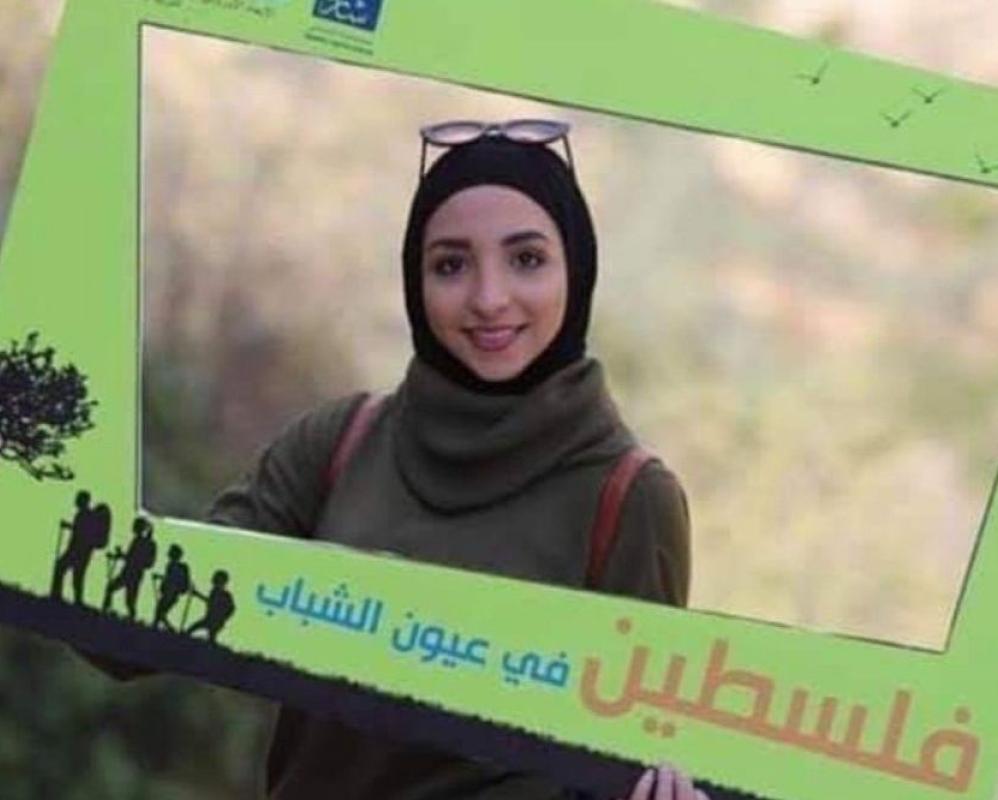By Khadija Khan
Israa Gharib, a 21 year old Palestinian woman from the Bethlehem area, was purportedly murdered in August in an “honour killing”. Gharib, a make-up artist, was reportedly killed at the hands of her relatives for merely posting a picture on Instagram with her soon-to-be fiancé.
Three of Israa’s relatives have now been charged and others who also played a part in her death will also be prosecuted.
The young woman’s murder has once against revealed the problems in conservative Muslim societies, where honour killings are prevalent and often go unregistered.
This is where the murder of, quite often, a female by family members, who believe that the victim has brought shame or dishonour on them.
In many Muslim societies, the data on honour killings is not systematically collected. Mostly, such vicious acts against vulnerable females are registered as suicides or accidents.
In Israa’s case, her family claimed she was mentally ill or possessed by an evil spirit, which then caused her to jump out of the window and to her death.
Such baseless statements are made to protect the perpetrators, who are seen as innocent or as saviours of the family honour by other relatives.
Needless to say, the issue of killing women in the name of honour cuts deep into the history of these societies, where religion is invoked to demonstrate women are inferior and men are the main source of moral guidance.
According to their religious beliefs women, and particularly their sexuality, are seen as a constant source of “potential threat” to society as a whole.
In most cases, the whole family collaborates with the perpetrators and the victim is regarded as a criminal. Therefore, the killing of such women who have brought dishonour on the family is considered legally and morally justified in their eyes.
Often, family members use the Islamic Qisas law to protect the perpetrator – this is where blood relatives have the option of receiving monetary compensation or to pardon the perpetrator of his or her sins.
Therefore, it is imperative to voice these concerns without being apologetic to save innocent girls and women of Muslim heritage.
What is also jarring is how US congress woman Rashida Tlaib, a Palestinian-American, Muslim woman, who is familiar with this misogynistic culture based on archaic religious teachings, was quick to play politics with the blood of an innocent girl.
Despite being an influential and independent Arab woman, she failed in calling out the religious and cultural traditions which contribute to the violations of Muslim women’s rights. Instead, she used her voice to blame “toxic masculinity” and the socio-political instability in Palestine for Israa’s death.
However, women’s rights abuses are prevalent even in apparently politically stable countries such as Saudi Arabia, the UAE, Iran, Pakistan, Bangladesh, Indonesia, Malaysia and other Muslim-majority countries.
Unfortunately, this is not the first time a female, Muslim politician has turned such an opportunity into political theatrics. US Democrat congresswoman Ilhan Umar recently excoriated Ani Zonneveld, a Muslim human rights activists and president of Muslim for Progressive Values, simply for asking her to make a statement in solidarity with the victims of Female Genital Mutilation (FGM).
Zonneveld runs an anti-FGM campaign. Omar could have simply denounced the horrific practice of mutilating female toddlers and girls. A strong voice like Omar’s could have sent a stark message to people of her own Somali community, who may have been preparing to mutilate their innocent girls.
Instead, Omar preferred to silence another Muslim woman voicing the miseries of the victims of FGM, by trying to be the victim herself.
Those who object to associating the gruesome crimes of honour killings with culture or Islam are either in denial or acting like apologists for religious misogyny.
If exposing truth really matters then it should be acknowledged in the first place that this “toxic masculinity”, ingrained in religious rituals and traditions, has also become an integral part of Muslim culture.
Some may say that patriarchy exists everywhere and honour killing are just another form of male dominance to control women and subjugate their sexuality. Certainly, this is not unique to Muslim societies.
It is true that women are killed in psychopathic homicides and victims of domestic violence all around the world. But let’s not make it an excuse to brush the harsh realities of Muslim societies under the carpet.

Religious sources overtly and covertly embolden such misogynistic attitudes in Muslim-majority countries that treat women as sub-human beings.
Such societies put the onus on women to protect themselves from unwanted situations, firstly by covering themselves from head to toe, and confining themselves within their four walls. This is why perpetrators get away with heinous crimes against women.
Wife beating is sanctioned by the Quran, according to mainstream interpretations. Therefore, many men consider it an ordained right to beat women, to “discipline” them. The concept of guardianship or ownership directly derived from the religious sources that make men responsible for women’s bread and butter.
Women are also referred to as fields, and men are instructed to go to “their fields” as plough them as they wish, which speaks volumes about the status of of men and women in religious discourse.
Then there are religious sources endorsing the traditions of child marriage, FGM, instant divorce, Nikah halala (a practice in which a woman, after being divorced by triple talaq, marries another man, consummates the marriage, and gets divorced again in order to be able to remarry her former husband), polygamy and the imposition of hijab.
All these are used to perpetuate violence against women and embolden men to treat women as commodities. These are not “stereotypes” but bitter realities of the women who are raised in conservative Muslim societies.
Women are deprived of their agency, ostracised, tortured and killed in the name of honour not only in Muslim countries, but in the West, too.
It is disappointing to see people making excuses and not addressing this deep-rooted menace of violence against women of Muslim heritage that has been normalised in the name of religion and culture.
Such discriminatory culture only develops a deeply misogynistic society that becomes a breeding ground for crimes against humanity, such as honour killings. And religious authorities seldom condemn the violence against women.
If we ever want to eradicate this menace of violence against women from Muslim societies, then we need to acknowledge that there are certain readings of religious sources that strengthen gender apartheid in Muslim culture.
Female Muslim politicians, in particular, should address the issues concerning violation of Muslim women’s rights. There are many women who, like Israa, have been helpless and can’t defend themselves.
Hundreds of Palestinians protested against Israa’s killing, demanding legal protection for women. This will remain a dream until discriminatory laws are not questioned by the society itself. Women’s rights are inalienable. No culture or religion can take them away.

Khadija Khan is a journalist and commentator based in Germany. You can follow her on Twitter.

